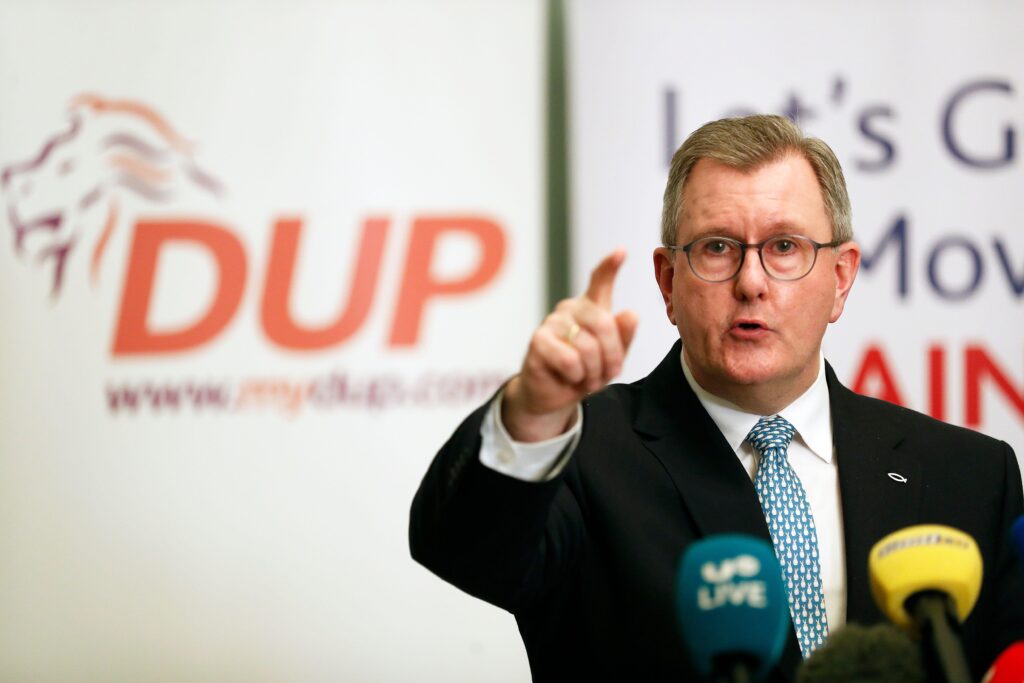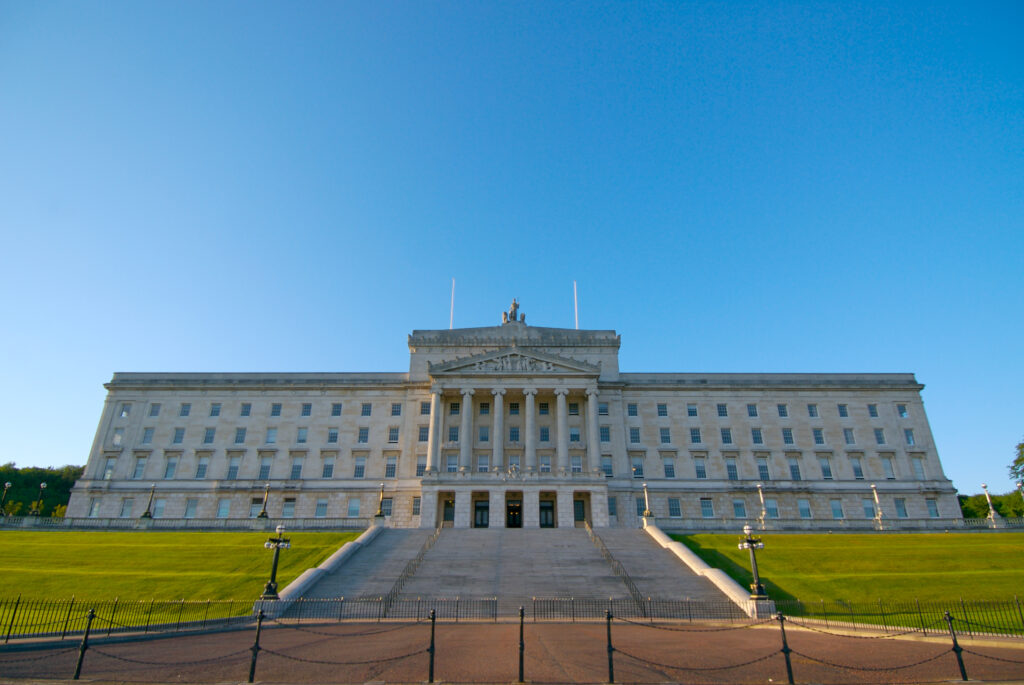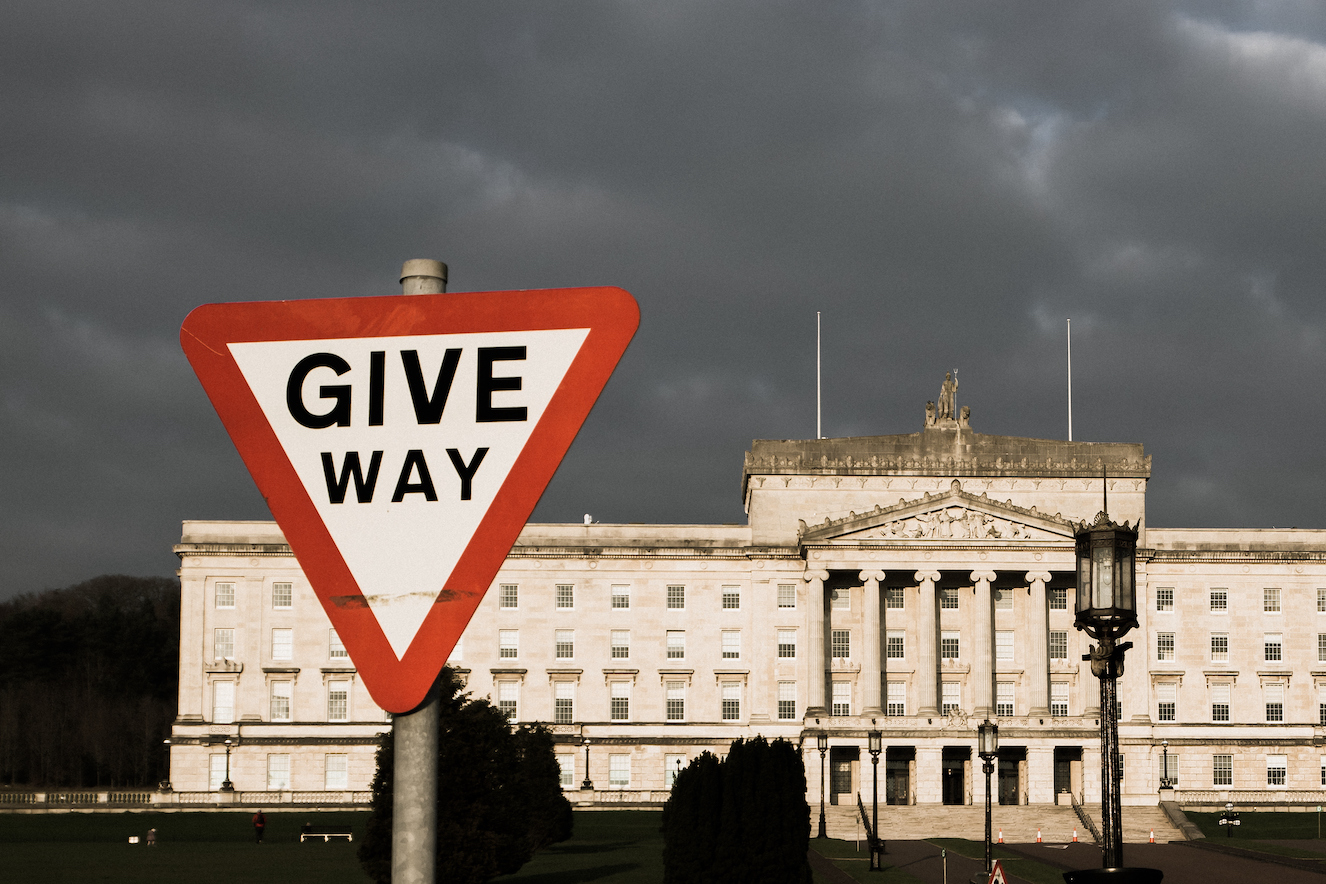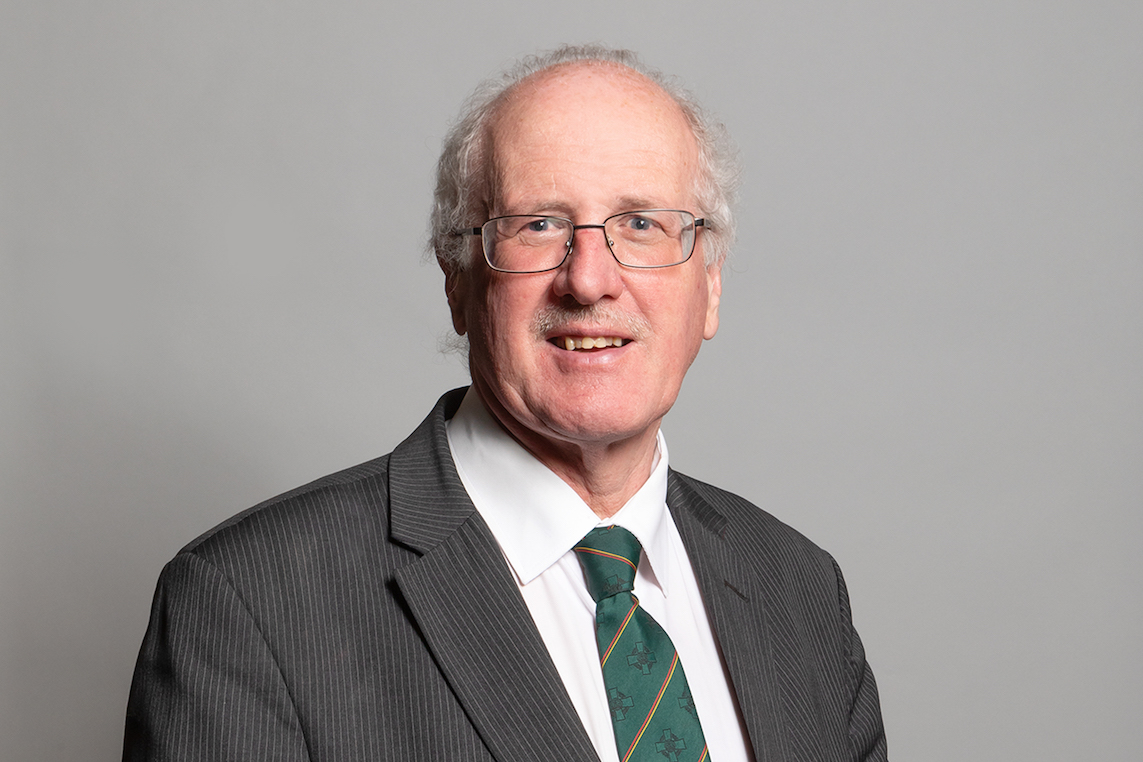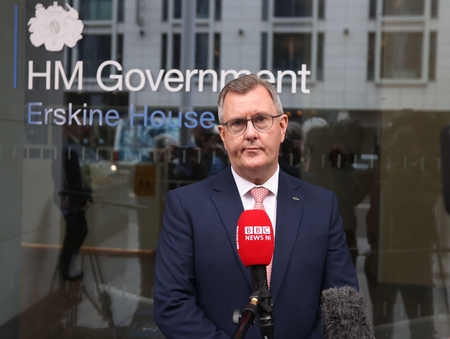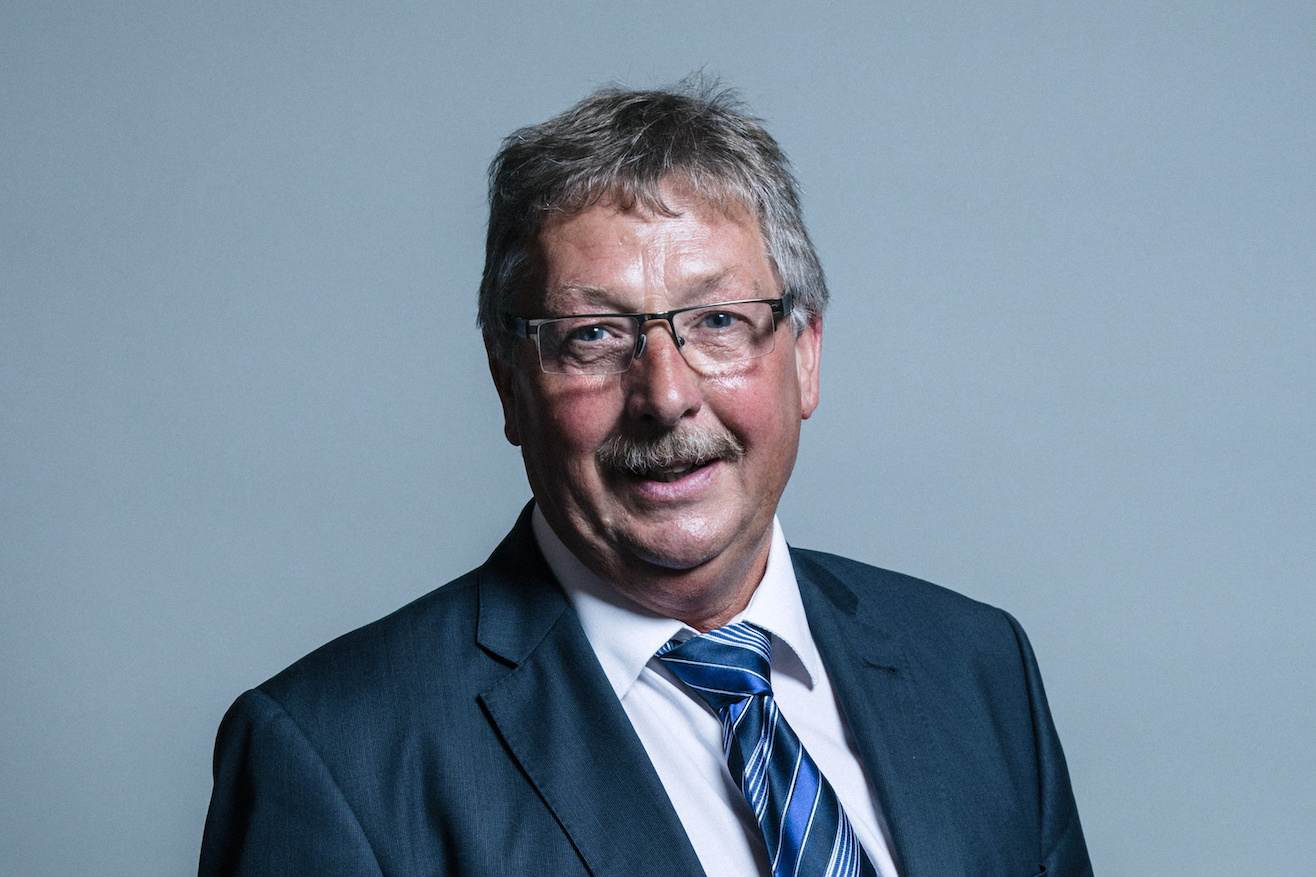Overview
The DUP (formerly known as the Democratic Unionist Party ) is a Unionist Party that competes in Northern Irish elections. Since overtaking the Ulster Unionist Party in votes and popularity, the DUP is now Ulster’s leading unionist party and the largest party in the Northern Ireland Assembly.
Electoral Representation
The DUP currently holds eight of Northern Ireland’s 18 House of Commons seats, as well as five seats in the House of Lords. In the 2019 general election, the DUP received a 30.6% share of the vote in Northern Ireland.
In the Northern Ireland Assembly at Stormont, the DUP holds 25 out of 90 seats. As well as this, the DUP had some 122 councillors across local government in Northern Ireland.
A Short History of the DUP
The DUP was founded in 1971 by the Reverend Ian Paisley, a preacher at the Free Presbyterian Church of Ulster. Paisley represented North Antrim for the DUP at Westminster between 1970 and 2010. Paisley’ son, Ian Paisley Jnr, is himself currently an MP for the DUP.
Emerging out of the Protestant Unionist Party, the DUP remains a staunchly protestant political organisation.

The Rev Ian Paisley was the leader of the DUP for 37 years between 1971-2008.
The DUP was historically regarded as the harder line of the two major Ulster Unionist Parties, and only became Northern Ireland’s largest unionist party, when it overtook the more moderate Ulster Unionist Party (UUP) in 2004. The DUP’s recent electoral progress has mirrored that of Sinn Féin on the opposite side of the Irish constitutional debate.
In the early years after its formation, the DUP was opposed to power-sharing, and rejected attempts to work with the Republic of Ireland to find a solution to the ‘Troubles’. The Democratic Unionist Party was initially opposed to the various constitutional agreements negotiated in the latter part of the Twentieth Century, including the Good Friday Agreement, and before it, the Anglo-Irish Agreement of 1986.
Despite having been historically opposed to power-sharing with Irish Republicans, in 2006 the DUP signed the St Andrews Agreement and entered into a Northern Ireland Assembly power-sharing government with Sinn Féin.
Following some 80% of the DUPs MPs and MLAs signing a letter of no confidence in Arlene Foster in April 2021, Ms Foster announced her intention to resign in the Spring of 2021.
In May 2021, Edwin Poots, was elected as the new Leader of the DUP, but was pressured to resign just six weeks later. He was subsequently replaced by Jeffrey Donaldson as the new leader of the DUP.
The leader of the DUP has traditionally acted as the First Minister of the Northern Ireland Executive, with the post held by Dame Arlene Foster, Peter Robinson and the Rev Ian Paisley. However this changed after the 2022 Northern Ireland Assembly elections when Sinn Fein became the largest party in the Assembly.
Supporting the Conservative Party: 2017 to 2019
When no Party won a majority in the 2017 British General Election, the Conservatives sought the DUP’s support to be able to govern. The two parties entered into a confidence-and-supply arrangement, which was signed on 26 June 2017 and eventually dissolved on 6 November 2019.
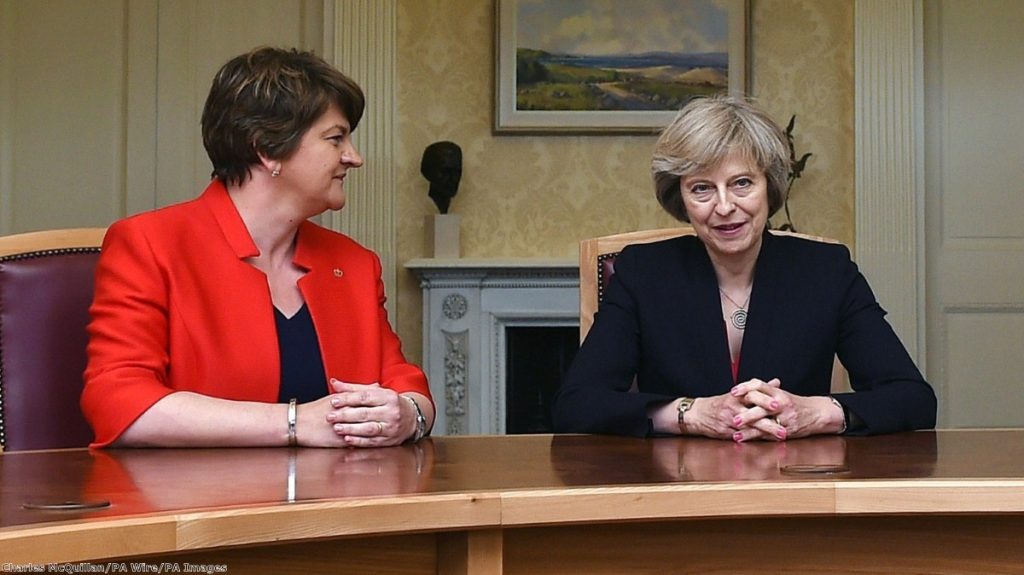
Arlene Foster did a deal with then Conservative Prime Minister, Theresa May,
This arrangement was not a formal coalition agreement, as per the type signed previously between the Liberal Democrats and the Conservatives (2010-2015), but an agreement which specified how the Democratic Unionists would support the Conservatives in important Commons votes. These included motions of confidence, the Queen’s Speech, the Budget, and legislation on finance, national security and Britain’s exit from the EU.
In exchange for the DUP’s support, the Conservative Party formally reiterated their commitment to the union, promised that no referendum on Northern Ireland’s future would take place ‘without the consent of the people’, and allocated a further £1 billion of funding to Northern Ireland.
As a result of its agreement with the Conservative government and the perilous Parliamentary arithmetic, the DUP’s voice became an important one during the Brexit deal negotiations of this time. It brought to the fore the issue of a possible border between Northern Ireland and the rest of the UK running down the Irish Sea.
The DUP continuously opposed any legislation that would treat Northern Ireland differently to the rest of the country. The DUP subsequently voted against both Theresa May’s and Boris Johnson’s Brexit withdrawal agreements in 2018 and 2019 respectively.
DUP Beliefs
The DUP strongly supports Northern Ireland remaining an integral part of the United Kingdom. It is firmly opposed to any notion of a United Ireland.
The DUP is a euro-sceptic Party and supported ‘Leave’ in the 2016 Brexit referendum.
The DUP seeks increased spending on infrastructure, in particular the NHS. It also argues in favour of keeping the so-called ‘triple lock’ on pensions and tax cuts for tourism businesses.
The DUP is the most strongly socially conservative Party in British politics. Historically it has opposed abortion and voted against equal marriage rights for the LGBTQ+ community.
DUP Leader Northern Ireland
The DUP has been led by Jeffrey Donaldson MP since 2021.
Contacts
Website: www.mydup.com
Twitter: @duponline









